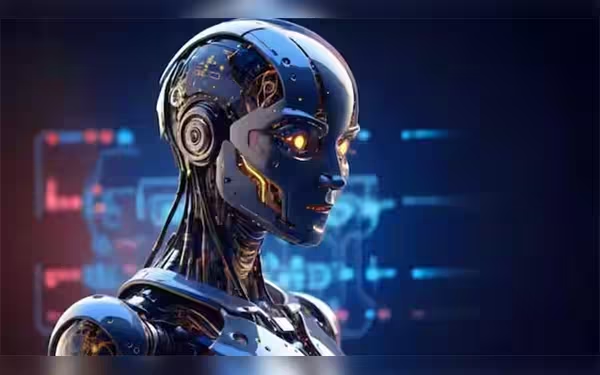Saturday, November 16, 2024 05:35 PM
Robots May Soon Think Like Humans, Say Researchers
- King's College London proposes robots can process information like humans.
- New programming method enhances robotic cognitive capabilities.
- Ethical considerations arise with advanced thinking robots.
 Image Credits: dunyanews.tv
Image Credits: dunyanews.tvResearchers at King's College London propose a method for robots to think like humans, raising ethical questions and future possibilities.
In recent years, the field of robotics has made significant strides, capturing the imagination of scientists and the public alike. The concept of creating robots that can "think" like humans has long been a topic of fascination, often depicted in science fiction. However, researchers from King’s College London are now suggesting that this dream may not be as far-fetched as it seems. They have proposed a groundbreaking method that could enable robots to process information in a manner similar to human cognition.
The researchers argue that the key to achieving this lies in how robots are programmed. Traditionally, robots rely heavily on electrical power to function, which can limit their processing capabilities. However, the team at King’s College London has discovered that by providing robots with complex instructions without the need for electricity, they can create more "free space" in the robotic "brain." This additional space could allow robots to manage and process information more efficiently, ultimately leading to a form of artificial intelligence that mimics human thought processes.
This innovative approach raises intriguing questions about the future of robotics. If robots can indeed be designed to "think" like humans, the implications could be vast. From enhancing everyday tasks to revolutionizing industries such as healthcare and education, the potential applications are endless. Imagine robots that can understand context, make decisions, and even learn from their experiences, much like a human would.
However, this development also brings forth ethical considerations. As robots become more advanced, society must grapple with the responsibilities that come with creating machines that can think and learn. What safeguards should be in place to ensure that these robots are used for the benefit of humanity? How do we prevent misuse of such technology? These are critical questions that need to be addressed as we move forward.
The research from King’s College London opens up exciting possibilities for the future of robotics. While the idea of robots "thinking" like humans may still seem like a distant reality, the advancements being made today are paving the way for a new era in artificial intelligence. As we continue to explore these innovations, it is essential to remain vigilant about the ethical implications and ensure that technology serves to enhance human life rather than complicate it. The journey towards intelligent robots is just beginning, and it promises to be a fascinating one.













